How to be Friends With a Special Needs Parent
A fellow member of the mom’s group, MAMC, recently asked a really interesting question. She said she has friends who have children with special needs, and she would love to know more about their lives, and help her children be friends with a child who has special needs. She wanted to know the best was to approach this subject without being offensive. There are countless lists online of everything you SHOULDN’T say to a special needs parent, but you can’t find much information on what you SHOULD say. Let me first start off by saying this:
If you have the right intentions, you can ask me absolutely anything about my child or her diagnosis and I won’t be offended.
I love talking about autism. And I obviously love talking about my child. So if you’re curious about something she is doing or want to know more about her therapies…PLEASE ASK!! I love to take advantage of any opportunity to educate about autism. I sometimes do this when no one asks me to. So if you show interest in knowing about my world, that is an easy way to make my day. I’ve made a list of things you can say and do to show that you are interested in knowing more, without offending someone.
 1. “I don’t know how you do it.”
1. “I don’t know how you do it.”
The life of a special needs parent is hard. It’s mentally, emotionally, and physically draining. We spend every single day fighting some sort of battle for our kids, so having someone acknowledge our efforts makes our battles seem worthwhile.
2. “How are they able to diagnose autism at such a young age?”
I’ve had people ask me this question with underlying skepticism. They aren’t actually interested in the diagnosis process or how autism affects the brain at EVERY age. They are basically just saying, “There’s no way any doctor can say your child has autism at 17 months old,” but in a nicer way. However, there are some people who are truly fascinated by the complexity of autism. They are legitimately interested in the diagnosis process, and they want to know the signs that doctors look for. If you’re curious, I’m happy to tell you all about it. If you’re just being skeptical, I don’t have time to talk to you.

My family and a good family friend all got matching tattoos in honor of Raelyn
3. “I would love to know what is going on in her mind right now.”
This simple statement tells me several things: 1. You understand that my nonverbal child is capable of thinking, problem solving and feeling just like typical children. 2. You acknowledge the fact that she isn’t able to TELL you what she is thinking. So sometimes you just have to imagine. 3. You are interested in my child and you want to know more about her.
4. “She is so great at __________”
…..Operating your iphone, climbing the slide, opening containers. You can put pretty much ANYTHING in this blank and it will make us feel like our child has won a gold medal. She can only say a few words, but there are so many things she is wonderful at doing. It is so refreshing to have someone else acknowledge her strengths.
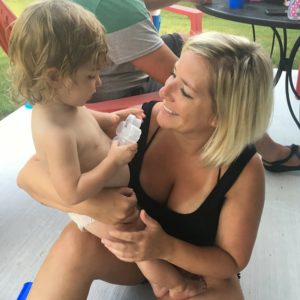 5. “How are YOU doing?”
5. “How are YOU doing?”
Having a child with special needs means rarely having any time for yourself. Our days consist of therapies, structured play, doctors appointments, and routine. It is so easy to get so caught up in the lives of our child, we often forget to take care of ourselves. I love for someone to show that they care enough to ask how Raelyn is doing. But for them to ask me how I am doing? Now that speaks volumes. If you’re going to ask a special needs parent this question, don’t expect a quick response of, “I’m fine.” We never get to talk about OURSELVES and you have just provided us with a golden opportunity! So be ready to listen!
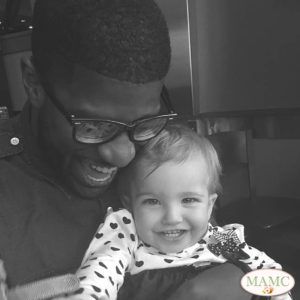 6. Play with my kid just like you would any other kid.
6. Play with my kid just like you would any other kid.
There is no sweeter sound than for me to overhear one of my friends playing with my daughter. I mean really playing. Laughing, singing, and reading books. Unfortunately there will always be people who don’t know and
aren’t willing to learn about autism. It clearly makes them uncomfortable to interact with Raelyn, so they choose to simply ignore her. There is nothing more heart breaking and infuriating than to have someone IGNORE my kid.
7. Acknowledge the fact that my child is autistic.
It makes a lot of people uncomfortable to know someone with a special needs child. They are so afraid of saying or doing the wrong thing, they choose to ignore the issue all together. I need people in our lives to understand that we live very different lives than other families because of our daughter’s needs. We have therapy sessions 4-5 days a week. We have to avoid elevators at all costs. We can’t eat at loud restaurants, because she gets overstimulated. The list goes on and on. It is absolutely appropriate to ask me if there is anything in particular about my child’s needs to keep in mind while making plans that involve my daughter. The worst thing someone can do is ignore the issue. You may think I don’t notice when someone completely shuts down as soon as the word “autism” is mentioned. But trust me, I notice.
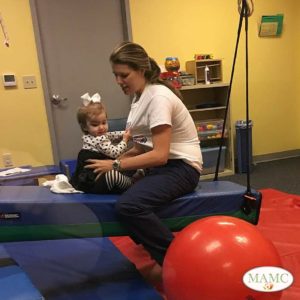
8. Comment on the progress she’s made.
We have to sit through countless evaluations with doctors and therapists, as they point out all of our kid’s shortcomings. So when someone notices how much progress she is making, it is really refreshing. Bonus points if you seem to truly CARE about her progress.
9. If you are curious about some of her odd behaviors, it is completely ok if you ask me about it.
Raelyn has different stims that she engages in usually when she is really excited. Some of them can look really odd to people seeing them for the first time. It’s ok for you to ask me about them. What is NOT ok is for you to stare or make a comment to someone else about “that weird thing she’s doing.” If you are wondering WHY she does these things, I am more than happy to explain it to you.

10. Just be there
There will be so many days when we just need a friend. A friend to talk to; to cry with; to eat junk food with; or just watch stupid youtube videos and laugh until we cry. If we need someone, please just be there. If our kid has a rough day, let us vent about it and don’t give us unsolicited parenting advice. If we are discouraged after a bad therapy session, allow us to fall apart if we need to, but then be there to help us pick up the pieces. If you can’t remember anything else on this list, just remember this one. Just be there.
Of course I can’t speak for all special needs parents.
What doesn’t offend me may offend someone else and vice versa. A good rule of thumb to go by though is this: Regardless of what you are asking, the chances of offending someone are very low if you’re asking with the right intentions. Please don’t be so afraid of offending someone that you stop coming around or avoid talking about their kid. At the end of the day, every parent wants to know that there are people who care about their child. So if you show genuine interest and concern, no one will be offended by what you have to say.

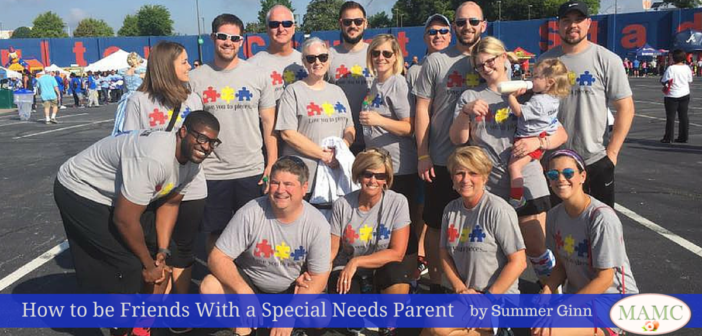
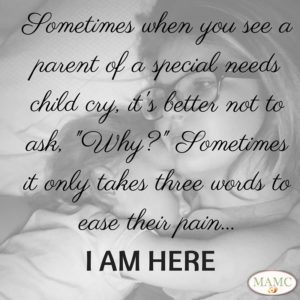
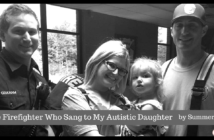


3 Comments
This is very fascinating, You are a very professional blogger. I’ve joined your rss feed and stay up for in the hunt for more of your magnificent post. Also, I’ve shared your web site in my social networks|
Very energetic blog, I enjoyed that a lot. Will there be a part 2?|
What’s up colleagues, its impressive article regarding cultureand completely defined, keep it up all the time.|